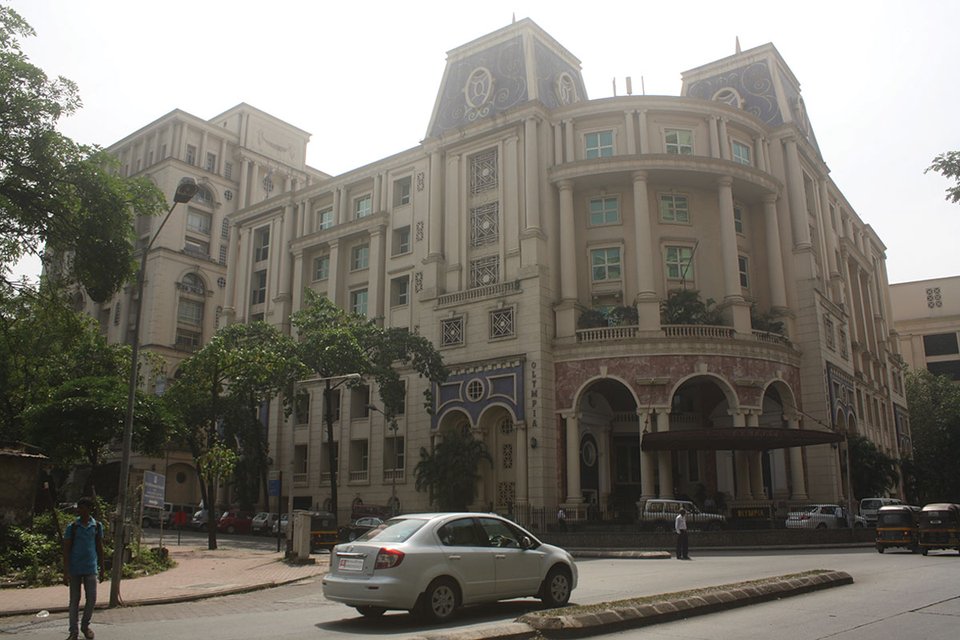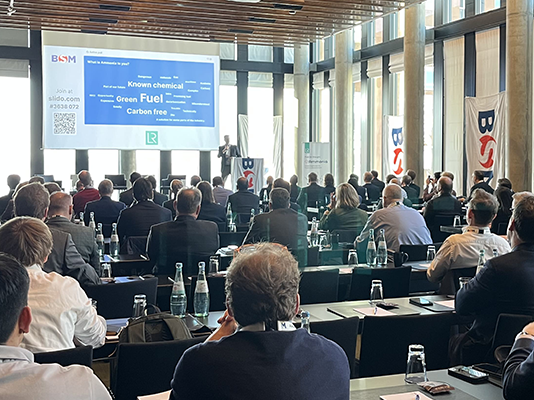
According to the World Bank, India remains the fastest growing economy in the world. With strong economic fundamentals and many reforms currently on track, analysts expect the country to continue its positive development.
One of the drivers is the so called Sagarmala project. With the development of major port clusters linked to industrial zones, the construction of inland water ways and new highways as well as the upgrade of existing roads, this initiative is set to change the maritime industry in the country.
“There is something in the air”, says Sanjeev Sharma, Managing Director of BSM India, when describing the current atmosphere in the country’s maritime industry. “India has seen a year-on-year cargo growth of 4.5% in the last year, but the maritime and transport market is not yet very mature. This puts experienced service providers such as BSM in a prominent position to play a key role in the country’s further development.”
Sankalp Shukla, Director of BSM India’s Crew Service Centre, elaborates: “About 7% of consumer costs are attached to transportation. Projects under the scope of Sagarmala will contribute to lowering these costs as the infrastructure will be improved. This will further boost the Indian economy. On top of this, it will kick-start ship construction in India. We will see many additional ports, and this will lead to more coastal shipping as a consequence.”
In Mumbai, BSM India’s offices incorporate a Ship Management Centre (SMC), Crew Service Centre (CSC) and Maritime Training Centre (MTC) under the same roof. Other value-added and support services including Seachef, Eurasia Travel Network, Central Purchasing, Global Service Centre and IT services are also located on the same premises.
“The fact that BSM India offers a high concentration of services in one place leads to more convenience for our customers. Time is money and customers appreciate our ability to coordinate activities very quickly. We are able to act as a ‘one-stop shop’ for our customers”, explains Sanjeev.
When it comes to training only the best is good enough. Whilst the IMO requires all seafarers to complete training based on the International Convention on Standards of Training, Certification and Watchkeeping for Seafarers (STCW), BSM has gone beyond this. The Company has identified gaps in the STCW scope and developed additional training to complement it, including a number of simulator based courses developed at Group level to ensure uniform standards of delivery at all training locations.
“Safety comes first and this is absolutely crucial for BSM,” Brijendra Srivastava, Director of BSM’s Maritime Training Centre in Mumbai, emphasises. “This is why our experienced faculty members have examined the framework of the STCW and developed some additional elements in liaison with our Corporate and other Maritime Training Centre colleagues to ensure comprehensive and consistent training for all ranks.”
The Mumbai facility features state-of-the-art simulators for engine and bridge operations, as well as LNG & RT Flex engine simulators for specialised training. Training courses cover the needs of cadets and trainees through to master and chief engineer level.
Companies including Chevron, BW Maritime and Shell have taken advantage of BSM’s facilities which is testimony to the high level of training provided.
One of India’s key advantages is the fact that doing business in the country is very cost-effective, which is especially beneficial when it comes to ship management activities.
With more than 4,000 seafarers on-board or ashore, CSC India is the second largest man-power supplier within BSM with six offices in major locations. Mumbai is the head office, with other locations being New Delhi, Chennai, Kochi, Bihar and Kolkata.
“Indian seafarers and shipping professionals have proved their worth in international shipping”, Sanjeev explains. “They play a major role for on-board and shore based shipmanagement activities around the world. India is the seventh largest provider of human resources in the maritime industry, but we take particular pride in the fact that India is the largest provider of senior officers to ships operating around the world.”
“As a consequence of the Sagarmala project, more crew will be required to run vessels employed in coastal trades, and BSM India is well equipped to cater for this demand,” Brijendra added.
BSM India has a proven track record of providing high quality services to a range of vessel types including dry bulk carriers and Very Large Ore Carriers (VLOC), container ships and chemical tankers, and acts as a third-party ship manager for different types of owners.
Some owners come from a shipping environment, but others have diverse backgrounds such as the mining, steel, or financial industries. Since shipping is not these customers’ core business, it is vital for them to be able to rely on an experienced ship manager.
Going forward, BSM India has identified the tanker and VLOC sectors as having great potential to increase business activities and Sanjeev is confident that “with many things happening in the country’s maritime industry, we will be able to take up opportunities as they happen.”
BSM is renowned for its newbuilding supervision, development of specific training programmes, supply of qualified crew and ongoing management of the Valemax VLOCs.
With a deadweight of 380,000 to 400,000 tons, these vessels are the largest bulk carriers ever constructed, measured by deadweight tonnage or overall length, and carry large volumes of iron ore between Brazilian and Asian or European ports.
“Some of our customers have trusted us to safely and effectively manage their ships for over two decades, with Mitsui O.S.K. Lines and BSM India having a business relationship of 25 years. Today we have a broad customer base of 15 ship owners including companies such as the COSCO Group, Hong Kong Ming Wah, Vale and Tomini Shipping, and we take great pride in not having lost a single customer due to performance related reasons” said Sanjeev.
The Indian maritime industry is changing and BSM India is well equipped to capitalise on business opportunities and meet the requirements of new customers as they arise. The team is very motivated and the Company places great emphasis on team building and cultural activities.
This is not only popular with employees, but with their families as well. “Our people interact outside of work, and this creates a special energy” Sanjeev, Sankalp and Brijendra agree.
BSM India has clearly proven that its personnel are not only qualified to the highest standards possible, but that everyone enjoys their work - something that cannot be trained.














